Air Force Secretary “Absolutely Confident” 6th Gen Crewed Fighter Will Move Forward (Updated)
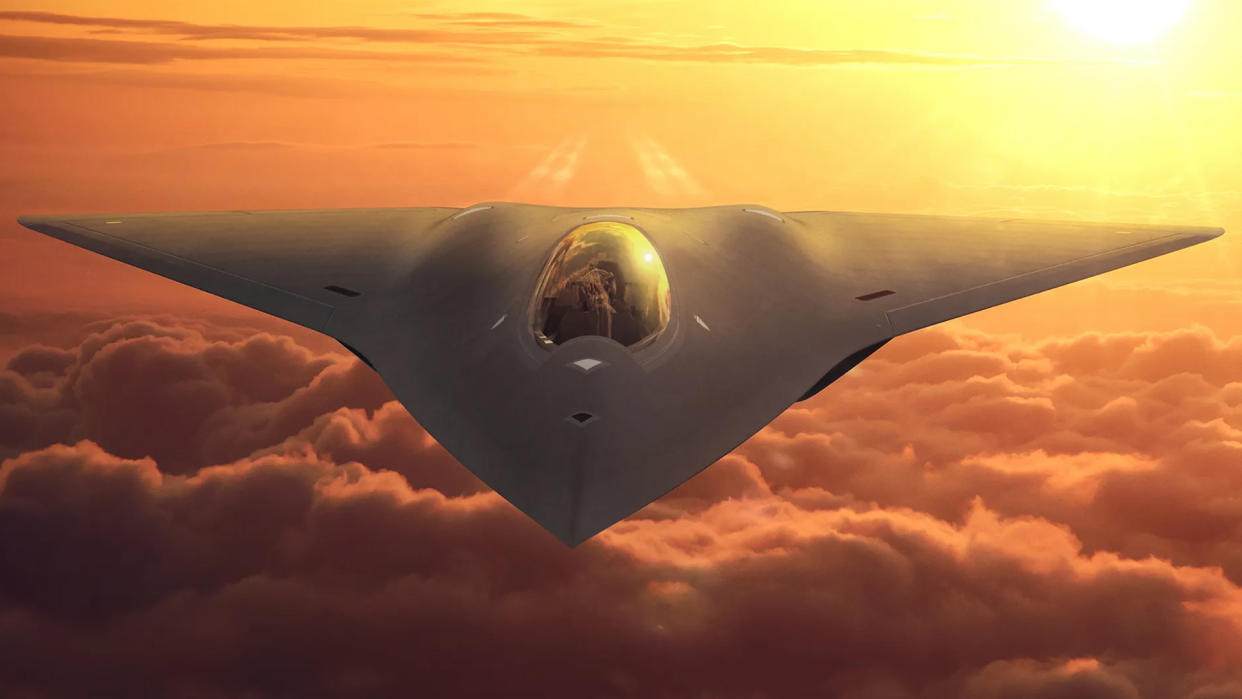
Secretary of the Air Force Frank Kendall has shed some more light on the status of the new sixth-generation stealth combat jet under development as part of the Next Generation Air Dominance (NGAD) program. “We’re taking a pause,” Kendall said this morning, before reiterating that while the fighter at the heart of the wider NGAD initiative will have a human pilot to start with, an optionally crewed version might ultimately be developed too.
See the update at the bottom of the story for additional details
Speaking at the Life Cycle Industry Days conference in Dayton, Ohio, Kendall explained that the pause of several months in the NGAD program was needed “to figure out whether we’ve got the right design and make sure we’re on the right course.” Refuting recent questions about the future of the program, the Secretary of the Air Force reiterated: “I’m absolutely confident we’re still going to do a sixth-generation crewed aircraft.”
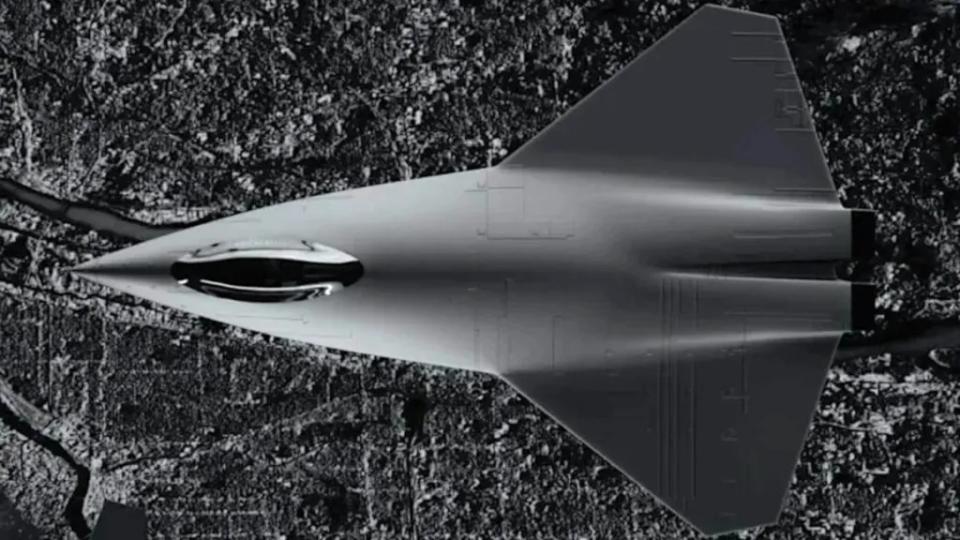
Kendall described the NGAD program as being at the pivotal stage when “you really have your last chance to think very carefully about, ‘Have I really got the right design here? Is this the right concept? Is it the right operational concept? Is it the right program concept, design concept?’”
The Air Force is yet to decide on the design and prime contractor for the NGAD fighter element, although the contenders are widely thought to be Boeing and Lockheed Martin after Northrop Grumman stepped away from the program last year.
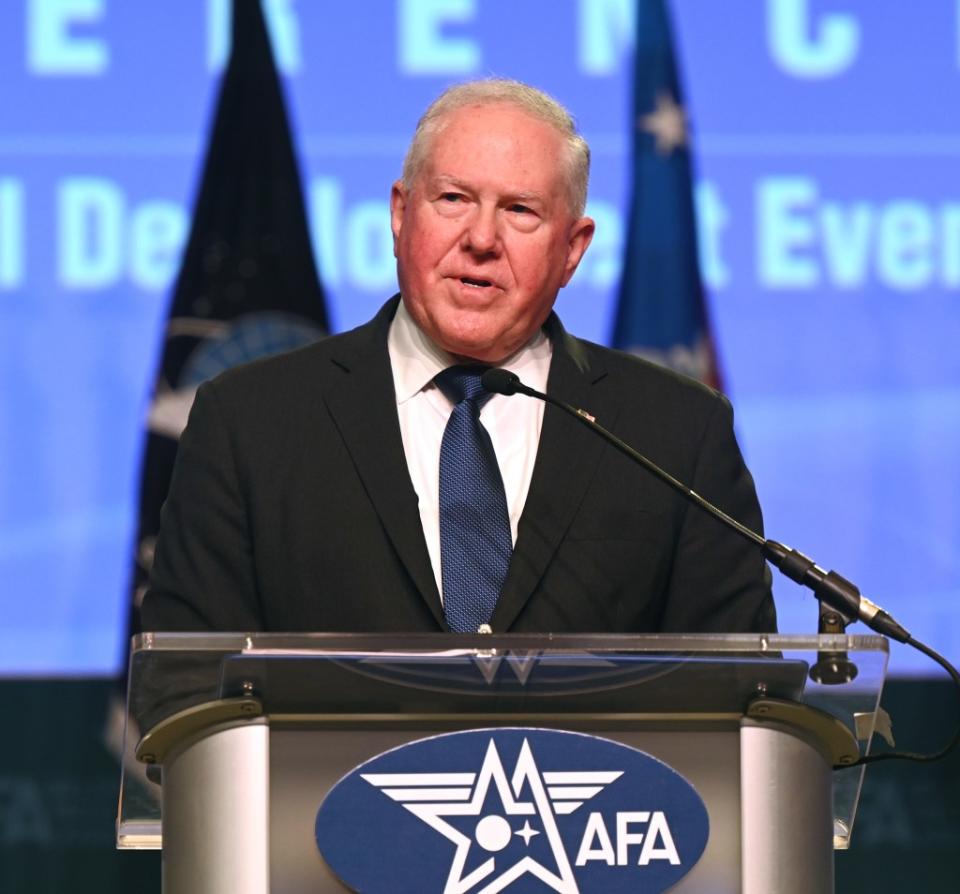
It’s notable that the pause only affects the fighter and not the other elements of NGAD.
“With the rest of the elements of the air dominance family of systems, we’re moving forward as fast as we can,” Kendall confirmed.
The broader NGAD initiative also contains programs focused on the development of advanced drones with high degrees of autonomy, as well as new jet engines, weapons, electronic warfare suites, sensors, battle management capabilities, and other systems.
As for whether the NGAD fighter element would also be produced in an uncrewed version, Kendall said that, while the current technology didn’t support this, “There’s a chance it might be uncrewed” in the future. At the same time, “we could always do something like an optional crewed platform,” Kendall added.
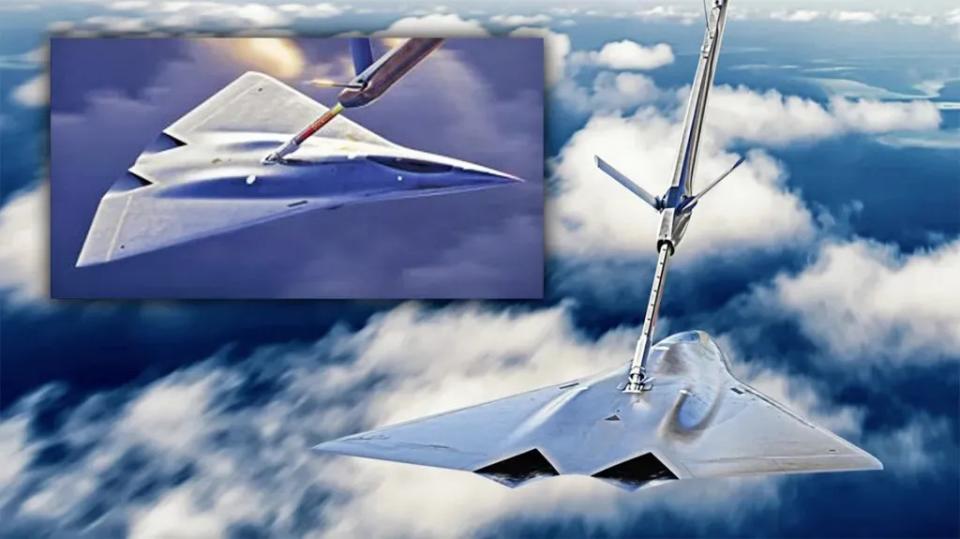
We have previously noted that an optionally crewed version of the NGAD fighter could be a distinct possibility, something that will be reflected in the B-21 Raider stealth bomber, too. While the Air Force hasn’t given up on such aspirations, Kendall’s words suggest that the timeline for these kinds of capabilities being realized has been delayed.
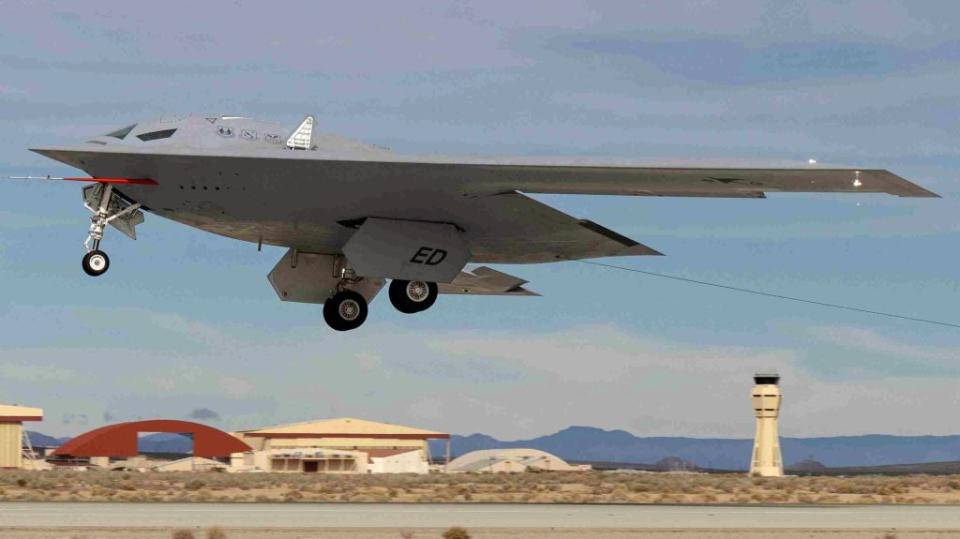
Kendall’s comments today are somewhat more upbeat than statements he made earlier this month when he had spoken of worries about “affordability problems” across the Air Force adversely affecting NGAD. At the same time, Kendall had also hinted that the fighter component of NGAD might not necessarily be a crewed design — a statement that he has now reversed.
At a round table earlier this month, Kendall had said “We’re going to take a hard look at NGAD,” leading to concerns about the future of the program. He had also suggested that there could still be significant changes to the core requirements for the fighter component and that he was only “reasonably confident that it’s going to be crewed.”
As we have discussed before, the Air Force is currently grappling with some significant budget problems, with certain key programs — including the Sentinel intercontinental ballistic missile (ICBM) seeing some big price hikes. In the case of Sentinel, the program’s estimated cost growth stands at 81 percent.
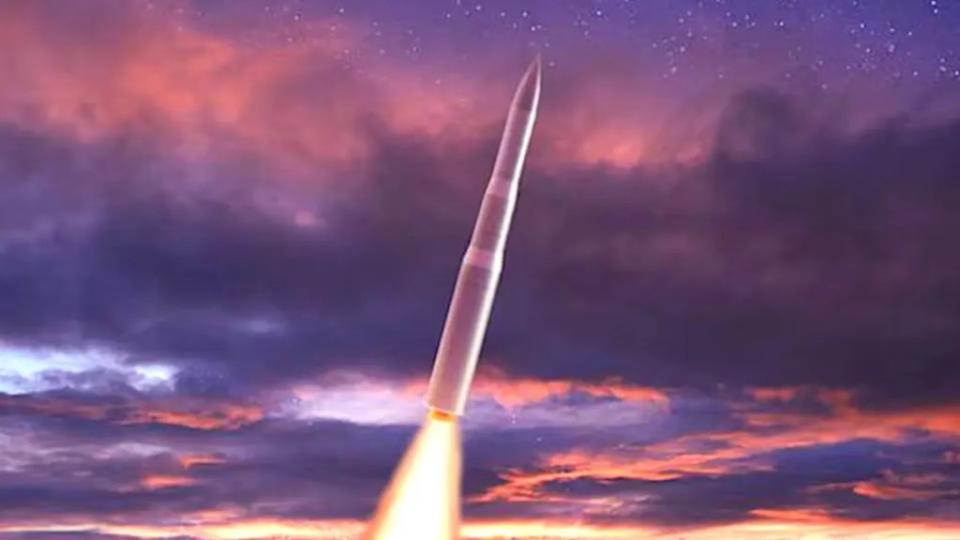
In the past, Kendall has also suggested that the Air Force might be willing to drop certain capabilities from the NGAD fighter, to help reduce the cost. The expected price tag is significant, with each copy of the new fighter expected to be around $250 million based on publicly available data. That is equivalent to around three times the cost of a single F-35 stealth fighter.
Kendall didn’t provide any more information today on the timeline for the NGAD fighter, although Air Force Gen. Kenneth Wilsbach, head of Air Combat Command, said earlier this month that he expected a winning design to be selected before the end of the year.
Overall, however, it seems that the Air Force is following the lead of the U.S. Navy, which had previously decided to slow down its own F/A-XX program, for a carrier-based next-generation fighter, to help budget for other major programs. An even more drastic cut to the Navy program is also under consideration.
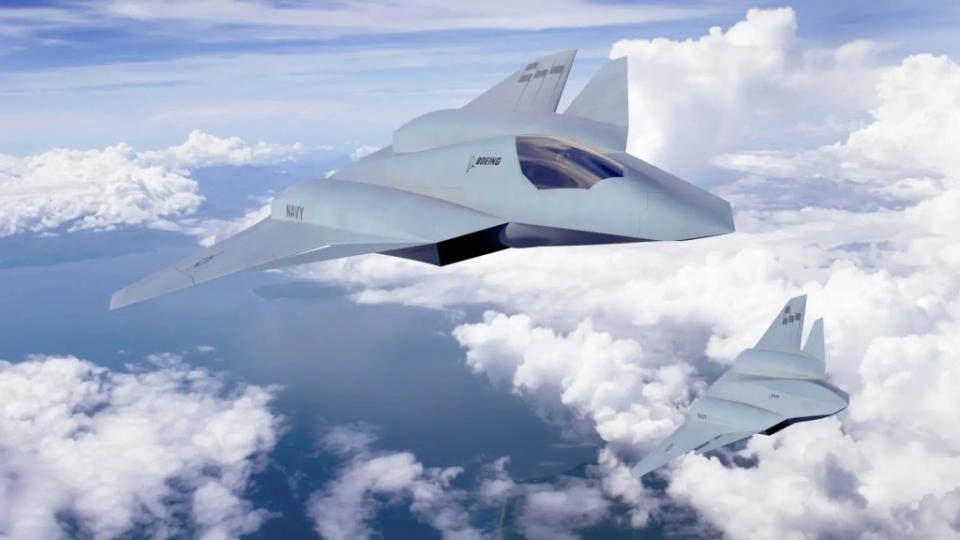
Even with the latest details from the Secretary of the Air Force, we don’t know for sure when the NGAD fighter design will be selected or how long it will take to get into service. Clearly, the program is at something of a crossroads, but Kendall today was eager to reiterate its importance within the Air Force’s future plans.
We are also no closer to an understanding of exactly what the new fighter might look like or the full scope of its capabilities. However, Kendall’s words today point to the fighter initially being fielded in a crewed version, although officials are clearly still looking into the potential of an optionally manned version, too.
UPDATE: 7:50 PM EST —
The War Zone has received additional details about the current status of the NGAD combat jet effort from a U.S. Air Force spokesperson:
“We are pausing source selection of the Next Generation Air Dominance platform as we reconsider the design based on changing threats and affordability,” the spokesperson said. “Following concept definition, the Air Force is planning to develop and procure an NGAD platform. We don’t have any additional information on the timeline.”
“I don’t have any details on the requirements that I can release,” they added in response to a direct query about whether the existing program requirements called for a pilot-optional design.
Contact the author: [email protected]
